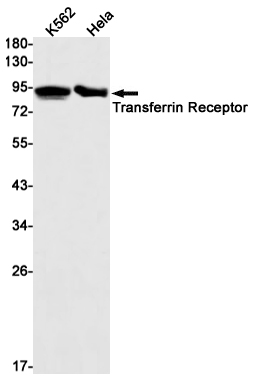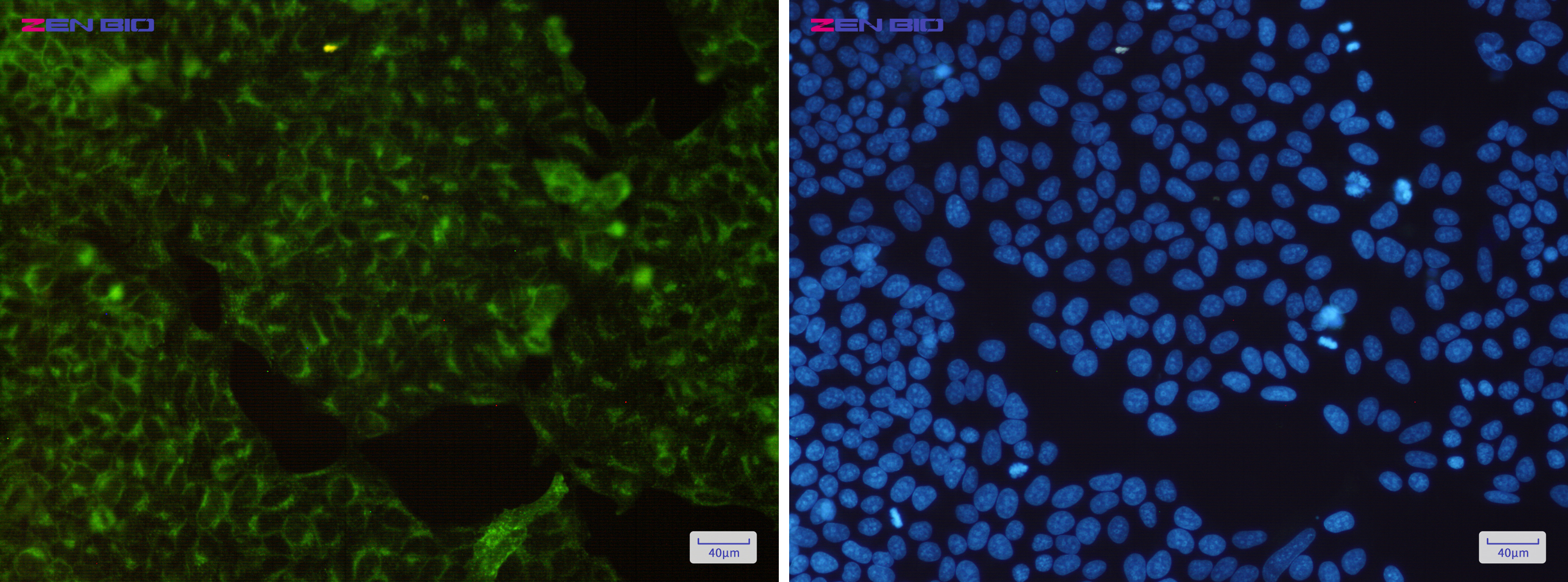-
Product Name
Anti-Transferrin Receptor Rabbit antibody
- Documents
-
Description
Transferrin Receptor Rabbit monoclonal antibody
-
Tested applications
WB, ICC/IF, IP
-
Species reactivity
Human, Mouse
-
Alternative names
T9; TR; TFR; p90; CD71; TFR1; TRFR; IMD46 antibody
-
Isotype
Rabbit IgG
-
Preparation
Antigen: Recombinant protein of human Transferrin Receptor
-
Clonality
Monoclonal
-
Formulation
Supplied in 50nM Tris-Glycine(pH 7.4), 0.15M Nacl, 40%Glycerol, 0.01% sodium azide and 0.05% BSA.
-
Storage instructions
Store at 4°C short term. Aliquot and store at -20°C long term. Avoid freeze / thaw cycle.
-
Applications
WB: 1/1000
ICC/IF: 1/20
IP: 1/20
-
Validations

Western blot detection of Transferrin Receptor in K562,Hela cell lysates using Transferrin Receptor Rabbit mAb(1:1000 diluted).Predicted band size:84kDa.Observed band size:90kDa.

Immunocytochemistry of Transferrin Receptor(green) in Hela cells using Transferrin Receptor Rabbit mAb at dilution 1/200, and DAPI(blue)
-
Background
Swiss-Prot Acc.P02786.Cellular uptake of iron occurs via receptor-mediated endocytosis of ligand-occupied transferrin receptor into specialized endosomes. Endosomal acidification leads to iron release. The apotransferrin-receptor complex is then recycled to the cell surface with a return to neutral pH and the concomitant loss of affinity of apotransferrin for its receptor. Transferrin receptor is necessary for development of erythrocytes and the nervous system . A second ligand, the heditary hemochromatosis protein HFE, competes for binding with transferrin for an overlapping C-terminal binding site. Positively regulates T and B cell proliferation through iron uptake (PubMed:26642240).
Related Products / Services
Please note: All products are "FOR RESEARCH USE ONLY AND ARE NOT INTENDED FOR DIAGNOSTIC OR THERAPEUTIC USE"
